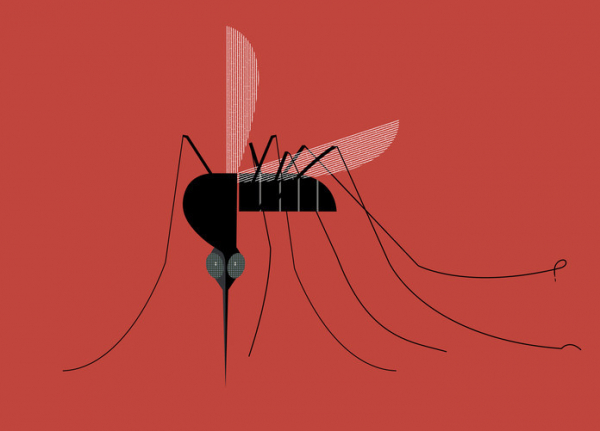
How well do you score on brain health?

Need another jolt of motivation to shore up a resolution to shed weight, sleep more soundly, boost nutrition or exercise levels, or cut back on alcohol? Then you'll be pleased to learn that any (and all) of these efforts can also add up to better brain health.
An international study led by researchers at the McCance Center for Brain Health at Massachusetts General Hospital devised and validated a Brain Care Score (BCS) card that makes it easy to total up what you're doing well and where you might do better. The prize is a healthier brain — specifically a lower risk for dementia and strokes.
Designed to predict how current habits might impact future brain health, the user-friendly scorecard is apparently the first of its kind, says Dr. Andrew Budson, a lecturer in neurology at Harvard Medical School.
"It's a real service that the researchers have developed a scale like this and completed the first study to determine if scoring worse on this scale raises your risk for dementia and stroke," says Dr. Budson, who wasn't involved in the analysis. "On one hand, no one's done something quite like this before. On the other, however, it's really wrapping together health factors everyone has known for a number of years in new packaging."
What's included on the scorecard?
Called the McCance Brain Care Score, the card tallies points from 12 physical, lifestyle, and social-emotional domains.
Physical components relate to
- blood pressure
- blood sugar
- cholesterol
- body mass index (BMI).
Lifestyle components include
- nutrition
- alcohol intake
- smoking
- aerobic activities
- sleep.
Social-emotional factors inquire about
- stress management
- social relationships
- meaning in life.
Each response is given a score of 0, 1, or 2, with the highest possible score totaling 21. Higher scores suggest better brain care.
"All these physical and lifestyle factors can contribute to the risk of dementia to some extent through strokes," Dr. Budson says. "Those that aren't a risk through strokes are usually related to the fact that a healthy brain is a brain that's using all of its parts. Engaging in healthy relationships and meaningful activities helps us maintain good brain structure and function."
What did the analysis involve?
The study was published online in Frontiers of Neurology in December 2023. It involved nearly 399,000 adults ages 40 through 69 (average age 57; 54% women) who contributed personal health information to the UK Biobank.
During an average follow-up period of 12.5 years, participants recorded 5,354 new cases of dementia and 7,259 strokes. Researchers found that participants with higher Brain Care Scores at the study's start had lower risks of developing dementia or strokes over time.
These threats to health and independence take a stunning — and growing — toll on people in the US. Dementia affects one in seven Americans, a rate expected to triple by 2050. Meanwhile, more than 795,000 people in the United States suffer a stroke each year, according to the CDC.
What did the study find?
Each five-point step higher in the BCS rating assigned when the study began was linked to significantly lower risks of dementia and stroke, with those odds varying by age group:
- Participants younger than 50 at the study's start were 59% less likely to develop dementia and 48% less likely to have a stroke with each five-point higher score on BCS.
- Participants 50 through 59 at the study's start were 32% less likely to develop dementia and 52% less likely to have a stroke with each five-point higher score on BCS.
But those brain disease benefits appeared to diminish for those older than 59 at the study's start. This group experienced only 8% lower odds of dementia and a 33% lower risk of stroke with each five-point higher score on BCS. Study authors theorized that some of these participants may have already been experiencing early dementia, which is difficult to detect until it progresses.
"I feel very comfortable that the study's conclusions are entirely correct, because all the factors that go into its BCS are well-known things people can do to reduce their risk of stroke and dementia," Dr. Budson says.
What are the study's limitations?
However, Dr. Budson notes that the study did have a couple of limitations,. The UK Biobank fell just short of collecting all the components of the BCS in its dataset, lacking meaning-of-life questions. So its scores ranged from 0 to 19, not up to 21. "It's a practical limitation, but it should be acknowledged that so far, there have been no studies to validate the actual 21-point scale they're recommending we use," he says.
The analysis also evaluated participants' scores at just one point in time instead of several, Dr. Budson says. Future research should determine whether people can lower their stroke and dementia risk by improving their BCS over time with behavior and lifestyle changes.
How can you play this game at home?
While better brain health may be the clear prize of a higher score, it's far from the only benefit. That's because improving any health component of the BCS also benefits our overall well-being.
"By improving these factors, not only will people help their brain, but they'll also help their heart and reduce their risk of cancer," Dr. Budson adds. "These factors will absolutely also improve your psychological health, which is certainly an important part of brain health."
The scale's simple breakdown of health factors also makes it easy to focus on tweaking one or two without getting overwhelmed.
"Let's say someone's nutrition isn't perfect — and they know it — but they're not willing to change their diet. Fine. They can then decide to do more aerobic exercise, for example, or to stop drinking, or to get the sleep their body needs," he says.
What one change could put you on a path to better brain health?
If he had to choose just one factor to improve brain health, Dr. Budson would focus on meaning of life, "which means you generally feel your life has meaning or purpose," he says. To do that, he suggests giving deep, quiet thought to what you wish your life's purpose to be, whether you expect to live a long time or just a few years.
"Once you have a purpose, then you have a reason to follow through with assessing all the other items on the BCS scale and seeing what you can do so you'll be around longer, and be competent and capable longer, to help fulfill the meaning and purpose of your life," he says.
About the Author

Maureen Salamon, Executive Editor, Harvard Women's Health Watch
Maureen Salamon is executive editor of Harvard Women’s Health Watch. She began her career as a newspaper reporter and later covered health and medicine for a wide variety of websites, magazines, and hospitals. Her work has … See Full Bio View all posts by Maureen Salamon
About the Reviewer

Howard E. LeWine, MD, Chief Medical Editor, Harvard Health Publishing
Dr. Howard LeWine is a practicing internist at Brigham and Women’s Hospital in Boston, Chief Medical Editor at Harvard Health Publishing, and editor in chief of Harvard Men’s Health Watch. See Full Bio View all posts by Howard E. LeWine, MD

Want to cool down? 14 ideas to try

You’re huffing and puffing and starting to sweat — and that’s just from walking across the parking lot in blistering heat and humidity. This summer has left us all struggling to stay cool.
“The last 13 months have been the hottest on record. We’re seeing increased levels of heat-related illness, and it started earlier in the season we’re used to,” says Dr. Tess Wiskel, a climate change and human health fellow at the Center for Climate, Health, and the Global Environment, and an emergency physician at Beth Israel Deaconess Medical Center.
Don’t wait until you’re overheated to figure out how to cool down. Be wary of high temperature risks throughout your day and practice ways to avoid them. Here are 14 ideas to get you started.
Cover the basics
- Become a weather expert. Use a weather app on your smartphone and pay attention to the hourly temperatures, not just daily highs and lows. Note the hottest points of the day and plan your schedule around them.
- Stay hydrated. One way the body cools down is by sweating. As moisture on the skin evaporates, it takes heat with it. That’s called evaporative heat loss. But you must replace the fluids you lose through a combination of drinks and water-rich foods. Generally, the National Academy of Medicine recommends totals of about 11 cups (88 ounces) per day for women and 15 cups (120 ounces) per day for men. If you spend a lot of time outdoors or are sweating a lot, you’ll need even more fluids.
- Seek air-conditioned environments. As much as possible, hang out in air-conditioned indoor spaces during the hottest points of the day. If you don’t have AC, go to a shopping mall, public library, movie theater, or a community cooling center.
- Use fans correctly. Another way the body cools down is by channeling blood and body heat to vessels near the skin’s surface, where heat escapes. A fan can blow that heat away from your body and keep you cool, but not if the surrounding air is hot. “In that case, wet your skin, even with a spray bottle or a wet wipe. The fan will promote evaporative heat loss,” Dr. Wiskel says.
- Take breaks. Pace yourself when doing outdoor activity. “Physical work produces its own heat at the same time you’re being heated from outside,” Dr. Wiskel says. “Be active for short periods and rest in between.”
Pack and dress for heat
- Bring cool-downs with you. Any time you leave your home, bring plenty of water. Even better: bring a handheld fan, wet wipes, and ice packs. That way you’re prepared if you get stuck outside.
- Wear loose clothing. Lightweight, loose-fitting garments allow air to get to your skin, promoting evaporative heat loss to keep you cool when you sweat.
- Try high-tech clothes. Consider wearing clothes with cooling technology (such as tops, bottoms, hats, or neck gaiters). They work in various ways. For example, a garment might be made of a special fabric that’s activated with water and stays damp for a long period, continually pulling heat from your body.
Try DIY cool downs
- Make a DIY cooling garment. Dunk a kitchen towel or cotton T-shirt in cold water, wear it on your head, neck, or torso, and then rewet the fabric as it dries. Or buy higher-tech versions made with fabrics and gels designed to stay cool longer.
- Eat or drink something cold. A cool glass of water, ice chips, or a popsicle help fight dehydration and might help lower your body’s core temperature. Just don’t ingest anything too quickly. Dr. Wiskel says it might cause gastrointestinal upset.
- Cool off with a shower or bath. Experts debate the best temperature for water to cool you down. Some maintain that cool water constricts blood vessels and sends heat back to the core, making you hot again. Others maintain that chilly water cools the blood vessels and sends cooled blood to the core. Dr. Wiskel’s take: “Immerse yourself in water that’s cooler than your body temperature. The water can be tepid. Once you’re out of the water, stand in front of a fan to promote evaporative heat loss.”
- Submerge your forearms. If you can’t take a shower or bath, try a trick used by the US Army: submerge your hands, forearms, and elbows in ice water for five minutes. This helps send cooled blood moving through blood vessels back to your core.
- Apply ice or cold packs. A water-free method to cool blood vessels involves placing ice packs in areas near large blood vessels such as the elbows, underarms, neck, or inside the legs near the groin area.
Know when to get help
If you’re not cooling down after trying numerous methods, Dr. Wiskel advises that you seek care. Call your doctor’s office or call 911 if you’re exhibiting signs of heat exhaustion, such as
- excessive sweating
- headache
- feeling faint or dizzy
- cold, clammy skin
- a fast or weak pulse
- extreme fatigue
- muscle cramps.
Pay extra attention to those symptoms, especially if you’re vulnerable to heat and aren’t able to regulate your temperature well.
“People at high risk include older adults, babies and children, those who are pregnant, people who take medications that make them less able to sweat, people who work outdoors, and people with certain health conditions, including cardiovascular disease,” Dr. Wiskel says. “And if you’re not high risk, check in on people who are.”
About the Author

Heidi Godman, Executive Editor, Harvard Health Letter
Heidi Godman is the executive editor of the Harvard Health Letter. Before coming to the Health Letter, she was an award-winning television news anchor and medical reporter for 25 years. Heidi was named a journalism fellow … See Full Bio View all posts by Heidi Godman
About the Reviewer

Howard E. LeWine, MD, Chief Medical Editor, Harvard Health Publishing
Dr. Howard LeWine is a practicing internist at Brigham and Women’s Hospital in Boston, Chief Medical Editor at Harvard Health Publishing, and editor in chief of Harvard Men’s Health Watch. See Full Bio View all posts by Howard E. LeWine, MD

Dengue fever: What to know and do

Mosquitoes are not just a buzzing summertime nuisance; they can carry serious diseases like West Nile virus, malaria, and Zika. In recent months, the US has seen an unusual spike in the mosquito-borne illness dengue fever, also known as breakbone fever.
What is dengue, and where is it occurring in the US? How does it spread? And what steps can you take to protect against this and other mosquito-borne illnesses?
What is dengue and what are its symptoms?
Dengue is a viral disease caused by any of four closely-related viruses: dengue virus 1, 2, 3, and 4. Not everyone infected with dengue will become sick: only about one in four will experience symptoms that range from minimal discomfort to serious problems. A blood test is used to confirm the diagnosis.
When symptoms do occur, they tend to feel like the flu. The onset of feeling unwell usually begins within two to three days of being bitten by an infected mosquito but can take up to six to nine days, says Dr. Edward Ryan, director of global infectious diseases at Harvard-affiliated Massachusetts General Hospital.
Seek medical advice if you have recently traveled to an area with a risk of dengue and have a fever (101° F or higher) combined with any of these symptoms:
- aches and pains (often headache or pain behind the eye or in muscles, joints, or bones)
- nausea and vomiting
- a rash (faint red blotches).
About one in 20 people who gets sick will develop severe dengue, which requires emergency care. Those at an increased risk for severe dengue include infants a year or younger, pregnant women, adults ages 65 years or older, and those with previous dengue infections.
Symptoms of severe dengue require immediate medical care. They include:
- feeling very weak and lightheaded from low blood pressure
- bleeding from the nose or gums
- stomach swelling
- vomiting
- extreme fatigue.
How is dengue treated?
Dengue is cause by a virus, and no specific medications are available to combat it. Milder dengue symptoms typically last two to seven days, according to the Centers for Disease Control and Prevention (CDC). The symptoms are managed supportively: plenty of fluids, over-the-counter pain medications, and rest.
Severe dengue usually requires treatment in a hospital with intravenous (IV) fluids. Patients are monitored until their fever breaks and symptoms begin to wane. This usually happens in about three to five days. Recovery at home can last many more days before a person’s strength returns.
“While there are reports of people dying from severe dengue fever, deaths from dengue cases in the US are rare,” says Dr. Ryan.
How does dengue spread?
The viruses that cause dengue do not directly spread from person to person. Aedes species mosquitoes can become infected with the dengue virus when they bite a person who has the virus. Infected mosquitoes then spread the virus to other people.
US visitors to high-risk countries may unknowingly bring the virus home with them, giving dengue infection a chance to spread further. For example, an infected person will have dengue virus circulating in their bloodstream for up to one week after being bitten. Let’s say the person returns to the US sooner than seven days, where they get bitten by a mosquito. That mosquito in the US now carries the virus and could bite someone else, thereby spreading the infection.
Where is dengue occurring in the US?
Most dengue transmission in the United States happens in areas where this illness is already common, such as Puerto Rico, American Samoa, and the US Virgin Islands.
At this writing, the CDC has reported nearly 3,000 dengue cases in the United States and US territories. States with the highest reported instances include Florida, New York, Massachusetts, and California. (Puerto Rico, which declared a public health emergency in March, had reported almost 1,500 cases by late June 2024.) While US cases are higher than in previous years, they are still low compared to the global incidence of dengue, which hit a record 9.7 million cases in North, Central, and South America during the first six months of 2024.
It’s not clear what has caused the sudden rise in dengue cases. Dr. Ryan says it could be due to several factors, such as higher seasonal travel, more people living closer together in urban settings, and the fact that there are more mosquitoes are carrying dengue.
Is there a dengue vaccine?
Currently, there is no widely available dengue vaccine for US travelers. One FDA-approved vaccine, Dengvaxia, protects children ages 9 to 16 from all four types of dengue. It is used only for children who have had a previous infection and who live in areas where dengue is common. However, the vaccine will be discontinued in September 2025, with the final doses expiring in September 2026.
What steps can you take to prevent dengue?
The best way to prevent dengue when visiting high-risk areas and after returning home is to protect yourself from mosquito bites. Here are some tips from the CDC:
- Use EPA-registered insect repellents with one of the following active ingredients: DEET; picaridin (known as KBR 3023 and icaridin outside the United States); IR3535; oil of lemon eucalyptus (OLE) or 2-undecanone (plant-derived ingredients); or para-menthane-diol (PMD).
- Wear loose-fitting, long-sleeved shirts and pants.
- Wear clothing and gear treated with permethrin (an insecticide that kills or repels mosquitoes).
- Place screens on windows and doors.
- When traveling, stay in places with air conditioning and screens. Use a bed net if air-conditioned or screened rooms are unavailable or if sleeping outdoors.
- To prevent mosquitoes from laying eggs in or near water around your home, empty and scrub, turn over, cover, or throw out outdoor items that hold water. This includes tires, buckets, toys, kid pools, birdbaths, flower pot saucers, or trash containers.
About the Author

Matthew Solan, Executive Editor, Harvard Men's Health Watch
Matthew Solan is the executive editor of Harvard Men’s Health Watch. He previously served as executive editor for UCLA Health’s Healthy Years and as a contributor to Duke Medicine’s Health News and Weill Cornell Medical College’s … See Full Bio View all posts by Matthew Solan
About the Reviewer

Howard E. LeWine, MD, Chief Medical Editor, Harvard Health Publishing
Dr. Howard LeWine is a practicing internist at Brigham and Women’s Hospital in Boston, Chief Medical Editor at Harvard Health Publishing, and editor in chief of Harvard Men’s Health Watch. See Full Bio View all posts by Howard E. LeWine, MD

Helping children make friends: What parents can do

We all want our child to have friends. We want them to be happy, and to build the social skills and connections that will help them now and in the future.
Sometimes, and for some children, making friends isn’t easy. This is particularly true after the COVID-19 pandemic. Because of isolation and remote school, many children either didn’t learn the skills they need to make friends — or those skills got rusty.
Here are some ways parents can help.
Start at home: Learning relationship skills
Making and keeping friends involves skills that are best learned at home with your family. Some of them include:
- Empathy. Make sure that everyone in the family treats each other fairly and with kindness. Sometimes we turn a blind eye to sibling fights, or feel justified in snapping at our partner when we have had a long day. No matter what we say, our children pay attention to what we do.
- Curiosity about others. Make a family habit of asking each other about their day, their interests, their thoughts.
- Communication skills. These days, devices endanger the development of those skills. Shut off the devices. Have family dinners. Talk with each other.
- Cooperation. Do projects, play games, and do chores as a family. Work together. Help your child learn about taking turns and valuing the input of others.
- Regulating emotions. It’s normal to have strong feelings. When your child does, help them find ways to understand big emotions and manage them.
- Knowing when and how to apologize — and forgive. This really comes under empathy, but teach your child how to apologize for their mistakes, make amends, and forgive the mistakes of others.
All of these apply also to how you and your partner talk about — or with — other people in front of your children, too!
Be a good role model outside the home, too
When you are outside your home, be friendly! Strike up conversations, ask questions of people around you. Help your child learn confidence and strategies for talking to people they don’t know.
Make interactions easier
Conversations and interactions can be easier if they are organized around a common interest or activity. Here are some ways parents can help:
- Sign your child up for sports or other activities that involve their peers. Make sure it’s something they have at least some interest in doing.
- Get to know the parents of some of your child’s peers — and invite them all to an outing or meal. It could allow the children to get to know each other while taking some of the pressure off.
- When planning playdates, think about fun, cooperative activities — like baking cookies, or going to a park or museum.
Keep an eye on your child — but don’t hover
Ultimately, your child needs to learn to do this — and you don’t want to embarrass them, either. The two exceptions might be:
- If the children aren’t interacting at all, you might want to suggest some options for activities. Facilitate as necessary, and step back out again.
- If there is fighting or meanness on either side, you should step in and make it clear that such behavior isn’t okay.
Keep an open line of communication, and be supportive
Talk with your child regularly about their day, about their interactions, and how things made them feel. Listen more than you talk. Be positive and supportive. Remember that part of being supportive is understanding your child’s personality and seeing the world from their eyes. You can’t make your child someone they are not.
If your child keeps struggling with making friends, talk to your doctor
All parents need help sometimes — and sometimes there is more to the problem than meets the eye. This is particularly true if your child has ADHD or another diagnosis that could make interactions more challenging.
For information on supporting friendships at different ages, check out the advice from the American Academy of Pediatrics.
Follow me on Twitter @drClaire
About the Author

Claire McCarthy, MD, Senior Faculty Editor, Harvard Health Publishing
Claire McCarthy, MD, is a primary care pediatrician at Boston Children’s Hospital, and an assistant professor of pediatrics at Harvard Medical School. In addition to being a senior faculty editor for Harvard Health Publishing, Dr. McCarthy … See Full Bio View all posts by Claire McCarthy, MD